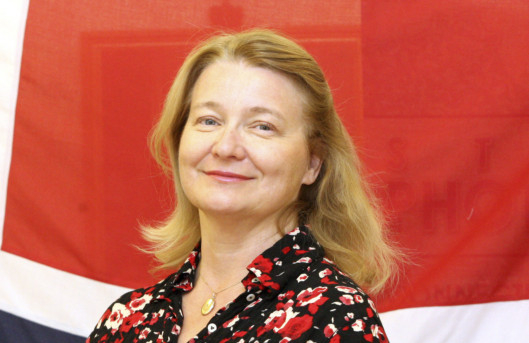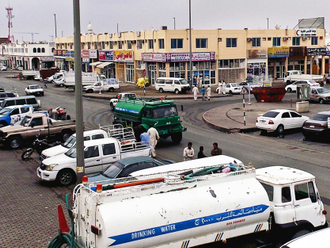
From politics and trade to humanitarian affairs, Norway and the UAE share a prosperous relationship. Though the trade and investment activities have always been critical in Norway’s relations with the UAE, the transfer of expertise and know-how, especially in the oil and gas sector, is increasingly becoming paramount in the bilateral relationship.
Commerce between both the countries has been stable in the last few years. With exports from Norway to the UAE standing at $280 million and imports reaching $18 million in 2011, the UAE is a major trading partner of Norway in the Middle East. While the UAE imports machinery, technical equipment and fish from Norway, it exports furniture and machineries.
“Trade figures don’t always reflect the level of engagement between the two countries. For instance, the value of services, investments are often not included in the trade statistics. A number of Norwegian companies regularly come to the UAE and share their expertise with their UAE counterparts to promote growth in various sectors,” says Ase Elin Bjerke, who took office as the Ambassador of Norway to the UAE in May, 2009.
“The UAE and Norway share a very strong relationship but there is definitely scope for further growth. We have the ambitions to strengthen the ties by working on areas of joint interests, apart from consolidating our political relations,” she adds.
Like the UAE, Norway’s wealth is also built on oil and the ambassador sees many opportunities for cooperation in the oil and gas sector. “While Norway produces 2.1 million barrels of oil per day, the UAE produces 2.7 million barrels a day. Both the countries are currently looking at ways to boost their production and export capacities. In the last 40 years, Norway has developed a strong expertise in the petroleum-related services sector. Since the demand for such services are growing in the UAE, the cooperation between the two petroleum nations are also set to grow.
“Norway has also developed cutting-edge technologies in the areas of renewable energy, improved oil recovery, fish farming and maritime industry. It is interesting to note that despite having substantial oil and gas reserves, Norway is not dependent on them for harnessing power. Electricity generation in Norway is almost entirely from hydroelectric power plants. Currently, Norway is working with the UAE to help it enhance the use of alternative energy in its energy mix and also set a clear path for sustainable energy management in the future,” she says.
Both the countries are also participating in various international forums to raise awareness about climate change and push implementation of sustainable utility projects in the region in order to cut down their dependence on carbon emitting fuels. “At Rio +20 conference, for instance, we participated to discuss how we can ensure environmental protection. Right now, we are also focusing on the Cop 18 climate change conference that will take place in November 2012 in Doha, Qatar. We are also working with Masdar to drive the UAE’s efforts towards a sustainable future,” Bjerke says.
Norway is looking at enhancing its cooperation in the field of humanitarian assistance in the Middle East. “The UAE is an important donor in the region and has the necessary expertise to bring changes in crisis situations. Norway has also been active in providing humanitarian assistance to refugees and other displaced persons, and that’s why we want to work with the UAE to find out how we can help the affected people in the Middle East and South Asia,” the ambassador points out.
Norwegians in the UAE
An estimated 1,500 Norwegians live in the UAE, who, Bjerke says, have moved to the UAE for economic opportunities and remained here for the convenience and quality of expat life. “Norwegian expats are active in maritime sector, oil and gas. They are hard working, proactive and competent. They normally come here armed with years of experience. Owing to high cost of labour, Norwegian companies are always very innovative and look at the ways to enhance productivity of workers. So when a Norwegian relocates to the UAE, he brings with him that ingenuity in the workplace,” she says.
“Besides, moving to the UAE has always been an intriguing experience for Norwegians. Apart from the sun and sand, they also get to enjoy the best of both worlds – traditional Arabic culture and a very convenient lifestyle,” she adds.
The embassy noted a substantial increase in the number of tourists visiting the UAE in recent years. “The GCC is growingly becoming a hub for traffic from Asia, Africa and Europe. Norwegians come to the UAE often for an extended weekend simply to soak up in the sun and also indulge in retail therapy. The low-cost carrier Norwegian operates direct flights from Oslo to Dubai during the winter months,” she says. However, when it comes to outbound tourism from the UAE to Norway, the demand is yet to pick up. Bjerke points out that with more promotional activities about the tourism prospects in Norway, the demand is set to swell further. With a fjord-indented coastline, rugged mountains and woods, the unspoiled nature of Norway can offer fascinating holidays to adventure seekers in the UAE.
The Norwegian embassy in Abu Dhabi regularly organises events and cultural activities in association with the various government agencies and local community organistions to fortify ties between both the states.
It also celebrated the International Women’s Day earlier this year by organising various programmes in collaboration with the United Nations in the UAE to encourage young Arab women to go for higher education. After successfully organising an exhibition on contemporary architecture in Norway a couple of years ago, the embassy is now planning to bring that exhibition back in Abu Dhabi again in 2013.
Bjerke hopes that with the implementation of the GCC and the European Free Trade Association (EFTA) agreement, the business between the Middle Eastern and Europeans states (Iceland, Liechtenstein, Norway and Switzerland) are set to intensify further. “The free trade agreement covers a broad range of areas including trade in goods, services, competition and government procurement. When enforced after ratification the agreement will abolish all trade barriers and enhance economic ties,” she says.






